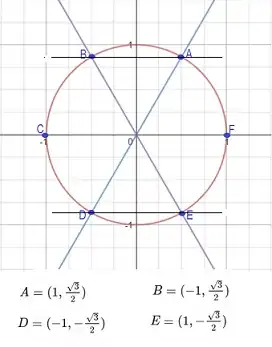In the figure below, in which the trigonometric circle has been divided into six equal parts, we can see clearly that for $x= \frac {\pi}{3}$ the following equalities are verified:
$\sin( \frac{n\pi}{3})=\frac{\sqrt3}{2}$ for $n=1,2,7,8,……, 1+6n,2+6n,…..$
$\sin( \frac{n\pi}{3})=\frac{-\sqrt3}{2}$ for $n=4,5,10,11,......,4+6n,5+6n$
$\sin\left( \frac{n\pi}{3}\right)=0$ for $n=3,6,9,12,……,3n$
Hence, for $x= \frac {\pi}{3}$
$$\frac {\pi}{2} - \frac {\pi}{6}=\frac{\pi}{3}$$
$$\frac{\pi}{3}=\frac{\sqrt 3}{2}\sum_{n=1}^\infty \left[\frac{1}{1+6n} +\frac{1}{2+6n}-\frac{1}{4+6n}-\frac{1}{5+6n}\right]$$
We have
$$\frac{\pi}{3}=\frac{\sqrt 3}{2}A\iff \frac{\pi}{2\sqrt3}=\frac{3}{4}A=(1-\frac14)A$$
From which we see the odd-denominator terms $$\frac{1}{1+6n} -\frac{1}{5+6n}$$ remain unchanged and the even-denominator terms $$\frac{1}{2+6n} -\frac{1}{4+6n}-\frac{1}{4+24n}-\frac{1}{8+24n}+\frac{1}{16+24n}+\frac{1}{20+24n}$$
give a telescopic series of total sum equal to zero.
(Note that $4+24n=4+6(4n)$;$8+24n=2+6(4n+1)$; $16+24n=4+6(4n+2)$;$20+24n=2+6(4n+3)$; we obtain $$0=\frac12-\left(\frac14+\frac14\right) = \frac18-\frac18=\frac{1}{10}-\left(\frac{1}{20}+\frac{1}{20}\right)=\frac{1}{14}-\left(\frac{1}{28}+\frac{1}{28}\right)$$ an so on.
Thus we end with the addition of the terms $$\frac{1}{1+6n} -\frac{1}{5+6n}$$

